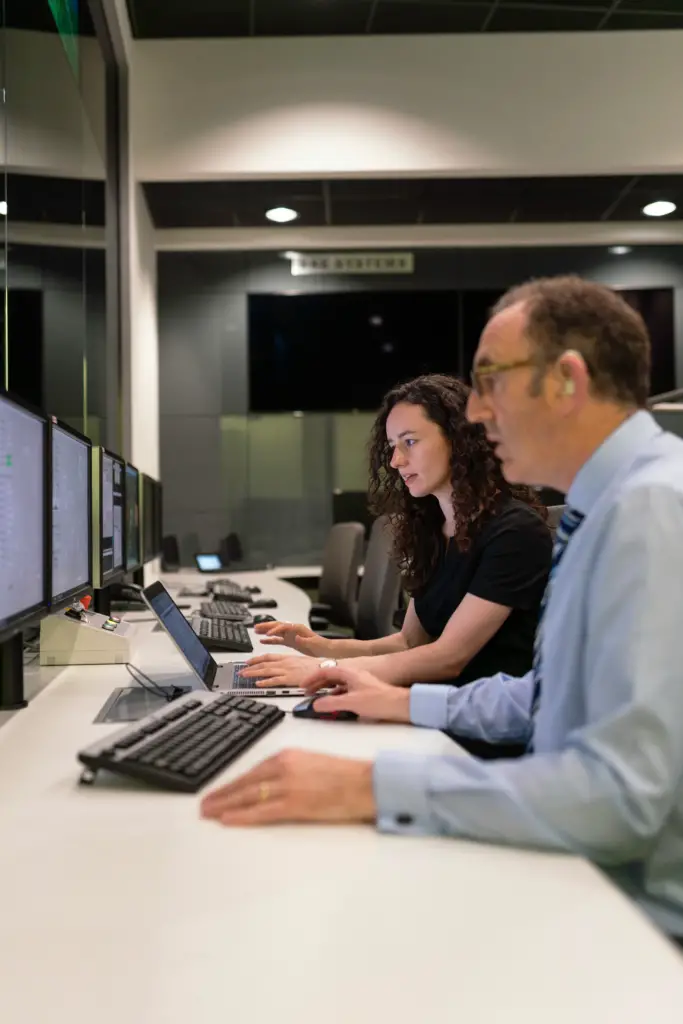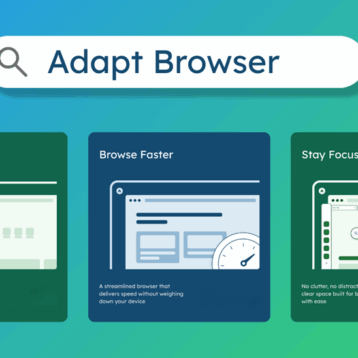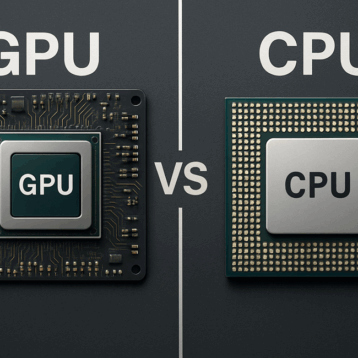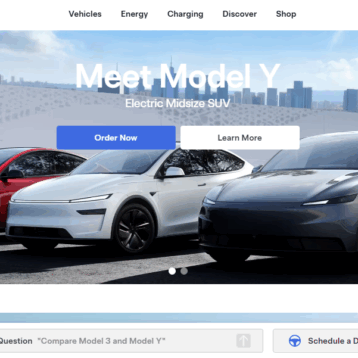AI systems need a lot of computer power to handle big amounts of data. The software – the algorithms and models – is important, but the hardware that runs these algorithms is just as crucial. This article takes a look at what hardware engineers do, their role in AI, and how you can find hardware engineers for your business.
What hardware engineers do
Hardware developers are experts who design and build the physical parts of technology, like processors and circuit boards. They make sure these parts work well and fit together with the software. They help make our devices faster, more powerful, and more reliable. They play a big role in improving technology and making it work smoothly.

The role of hardware engineers in AI
Hardware engineers are the masterminds behind the tech that lets AI systems run smoothly and give us accurate results.
Let’s take a closer look at the role of hardware engineers in the world of AI.
Making AI-friendly processors and hardware
Hardware engineers create special processors, like GPUs and TPUs, just for AI tasks. These processors can do lots of calculations at the same time, which is perfect for the heavy-duty computing that AI needs.
Hardware engineers tweak the design, memory, and connectivity of these processors to make AI systems work better and faster.
Speeding up AI model training and predictions
Training an AI model takes significant computational resources. You’ll need high-performance processors and memory, as well as substantial amounts of data for training purposes.
Hardware engineers build hardware accelerators to speed this up. These accelerators can do lots of calculations at once, cutting down the time it takes to train AI models.
When the trained model starts making predictions, special hardware can make the AI algorithms work faster, leading to quicker responses and better system performance.
Managing power and energy efficiency in AI systems
AI systems often process loads of data and do complex calculations, which can use a lot of power. Hardware engineers work on making power management and energy efficiency better, reducing the environmental impact of AI systems.
Hardware engineers can design hardware parts that use less power so that businesses can save on energy costs and reduce their carbon footprint.
Making AI systems scalable and easy to integrate
Hardware engineers make sure that AI systems can grow and work with existing infrastructure. They design and build hardware parts that can easily fit into different environments, allowing businesses to use AI systems across multiple platforms.
This scalability lets businesses use AI across their entire operations.
Working together with software developers
Hardware engineers work together with software developers to make sure that AI algorithms and models are designed to work their best with specific types of hardware.
For example, they might focus on optimizing the algorithms to run smoothly on specialized processors like GPUs (Graphics Processing Units) and TPUs (Tensor Processing Units). These hardware designs are specially made to make AI computations faster and improve the overall efficiency and performance of AI systems.
This teamwork is key to getting the best performance and efficiency from AI systems.
Finding and hiring hardware engineers for AI systems
AI keeps growing and becoming a bigger part of business operations, so it’s no surprise that there’s a growing demand for skilled hardware developers. These pros are key to unlocking the full power of AI technology, but finding and hiring the right talent can be tough.
Here are some tips to help you find the right people:
Know what you need
Before you start looking, figure out the specific skills and experience you need.
Do you need someone who is good at designing processors for AI workloads? Or maybe someone who’s a pro at power management and energy efficiency?
Asking these types of questions will help you identify the specific skills and experience that you need for your project. Knowing what you need will help you narrow down your search and find candidates who are a good fit.
Look in the right places
Search in reputable places to find experienced hardware developers. Websites like LinkedIn, Indeed, and Glassdoor are a good place to start. You can also check out specialized tech job boards or forums. Don’t forget about offline sources too, like industry events or networking meetups.
Think about hiring consultants
If you’re not ready to hire a full-time hardware engineer or if you need expertise for a short-term project, consider hiring a consultant.
Consultants have valuable experience and knowledge gained from working with different companies, which they can bring to your AI projects. They can give advice on best practices, help you avoid common mistakes, and train your existing team on the details of hardware development for AI.
Companies like Right People Group help connect you with pros who have the exact skills you need. This can be a fast and cost-effective way to get high-level expertise without the commitment of a full-time hire.
Think about remote workers
With the growing popularity of remote work, you now can tap into a global talent network of skilled hardware developers.
Platforms like Onsiter, Upwork, and Toptal can serve as valuable resources, connecting you with experienced professionals who can make significant contributions to your AI projects.
These platforms provide access to a diverse range of qualified individuals, allowing you to find the right talent regardless of their physical location.
Test practical skills
When interviewing candidates, it’s crucial to assess their practical skills effectively. Consider assigning them a small project or task directly related to the job they’ll be performing.
This hands-on approach allows you to gauge their abilities, problem-solving capabilities, and how well they align with the requirements of the role. It provides valuable insights into their potential contributions to your team.
Conclusion
Hardware engineers are super important in the development and optimization of AI systems. Their expertise in designing special processors, optimizing hardware designs, and making sure systems can scale is key to achieving high-performance AI solutions. As businesses keep embracing AI technologies, recognizing the value of hardware development, and working with experienced pros is key to unlocking the full power of AI.










